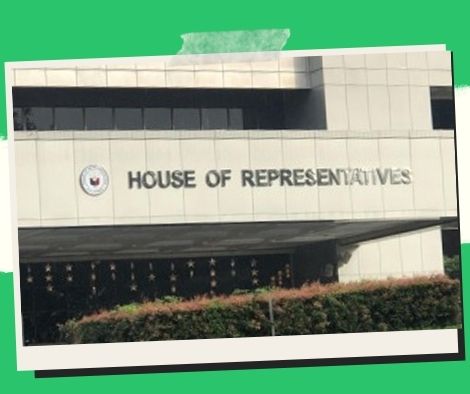
Congress has requested that the idle Bayanihan 2 loan monies be investigated.
MANILA, Philippines — On Friday, a lawmaker requested that Congress investigate the Commission on Audit’s (COA) finding that PHP4.99 billion, or more than half of the funds set aside for loan distribution to micro, small, and medium enterprises (MSMEs) under the Bayanihan to Recover as One Act (Bayanihan 2), was never used by the intended recipients.
Rep. Luis Raymund Villafuerte of Camarines Sur said Congress should investigate the COA report showing more than half of the monies intended to rescue MSMEs, notably those in the tourist sector, sat idle until Bayanihan 2’s prolonged effectivity period expired in June last year.
According to a COA report dated March 2, as of June 30, 2021, the Small Business Corp. (SBC) had released only PHP4.09 billion of the PHP9.08 billion earmarked for the Department of Trade and Industry’s Covid-19 Assistance to Restart Enterprises (CARES) Program, which will be distributed as collateral-free, zero-interest loans to MSMEs.
According to Villafuerte, this was mostly due to the SBC’s allegedly insufficient employees to process loan applications and potential recipients’ unwillingness to acquire loans to restart their enterprises.
“It was obviously a case of misplaced priorities,” he said, “as tourism and other concerned authorities lobbied for the entire multibillion-peso rescue package to be funneled for loans to tourism-related MSMEs, rather than dedicating the amount or a portion of it to building tourism service infrastructure—in preparation for the eventual reopening of the domestic economy in general and the tourism industry in particular.”
According to him, a House-passed version of Bayanihan 2 included PHP10-billion funding for tourist infrastructure, but that was eventually canceled in favor of a PHP10-billion investment for the military “SBC with ties to the DTI for loans to tourism-related MSMEs.”
“Such tourism infrastructure would have been up by now—and ready for the restoration of our economy and tourism industry—since such facilities could be created in as little as six months to a year at most,” he stated.
“This unutilized money could have been used to pay other emergency efforts to alleviate the effects of the epidemic,” he said, citing the COA study.
He said that the over PHP5 billion in unused SBC funds had reverted to the National Treasury as required by law and that they could no longer be used for MSME loans or tourism projects.
He did note, however, that the government will continue to “switch to catch-up mode” by increasing the Tourism Infrastructure and Enterprise Zone Authority (TIEZA) infrastructure funds in the 2022 national budget and the proposed 2023 General Appropriations Act (GAA) to improve and expand tourism services infrastructure “improve the country’s competitiveness as a tourist destination”
He pointed out that infrastructure investments under TIEZA would have given the industry a tremendous boost at that period, producing a lot of jobs for displaced employees.
“Moreover, because infrastructure investments have a high multiplier effect of 3.5—meaning that every PHP1 invested generates PHP3.50 for the economy—funding for TIEZA projects would have produced much-needed economic activity in tourism destinations,” he added.
The “insufficiency” in SB Corp.’s human resources and the “hesitancy of potential clients” to take advantage of the financial aid were mentioned by state auditors as reasons why more than half of the outlay went unused by the time Bayanihan 2’s effectiveness expired in June 2021.
They said that the over PHP10 billion granted to SBC under the CARES program was “beyond its regular capacity” to process, as the bank had previously only handled PHP1.5 billion under the DTI-CARES program.
The auditors went on to say that the uncertainty among intended borrowers was evidenced by the fact that only 48,010, or 4.82 percent, of SBC’s 995,745 potential clients had applied for loans.
4,378 (or 9%) of these applicants later dropped their applications for a variety of reasons, including “extended processing time” and a lack of updates on their loan documents.
“The tourism industry receives the lion’s share of the budget. Many tourism-related businesses are hesitant to reopen due to the country’s successive impositions of heightened community quarantine,” according to the COA.
As a result, according to the COA report, just 28,222 MSMEs had taken out loans totaling PHP4.99 billion as of June 30, 2021.
Under CARES, businesses with less than ten employees up to 199 employees and a capital of PHP3 million to PHP100 million were eligible for zero-interest, collateral-free loans ranging from PHP10,000 to PHP5 million.
Save/Share this story with QR CODE
Disclaimer
This article is for informational purposes only and does not constitute endorsement of any specific technologies or methodologies and financial advice or endorsement of any specific products or services.
📩 Need to get in touch?
Feel free to Email Us for comments, suggestions, reviews, or anything else.
We appreciate your reading. 😊Simple Ways To Say Thanks & Support Us:
1.) ❤️GIVE A TIP. Send a small donation thru Paypal😊❤️
Your DONATION will be used to fund and maintain NEXTGENDAY.com
Subscribers in the Philippines can make donations to mobile number 0917 906 3081, thru GCash.
3.) 🛒 BUY or SIGN UP to our AFFILIATE PARTNERS.
4.) 👍 Give this news article a THUMBS UP, and Leave a Comment (at Least Five Words).
AFFILIATE PARTNERS

World Class Nutritional Supplements - Buy Highest Quality Products, Purest Most Healthy Ingredients, Direct to your Door! Up to 90% OFF.
Join LiveGood Today - A company created to satisfy the world's most demanding leaders and entrepreneurs, with the best compensation plan today.



 Business Technology, Finance Technology & Information Technology
Business Technology, Finance Technology & Information Technology




